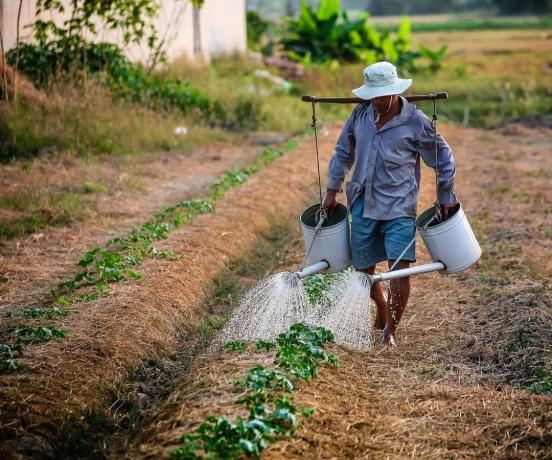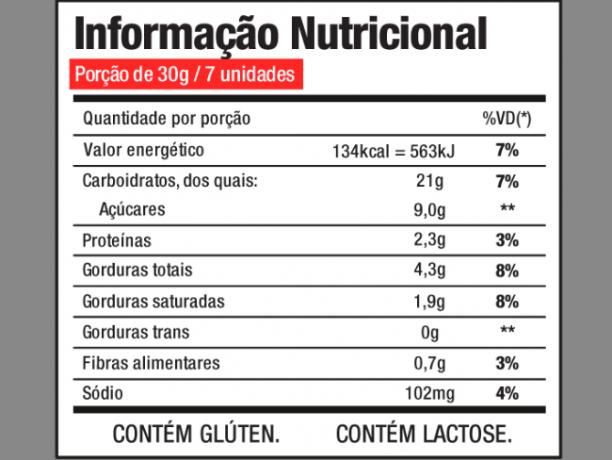Family farming is the agricultural activity of small producers, being the main source of income for the family nucleus. It is maintained by the family members themselves and may have few employees.
Almost 75% of Brazilian family farmers have some degree of kinship with the producer they work with.
In this type of agriculture, the products are intended to supply the regional domestic market and are not intended for food exports.
Who can be a family farmer?
For a farmer to be classified in this category, it is necessary that at least half of family income comes from agriculture and that the producer employs a maximum of two employees.
The size of the property is also important, the cultivated land. cannot be greater than 400 hectares. The measurement of family rural properties is made in fiscal modules, a measure that varies between 5 and 100 hectares, according to the region. A family farming property can have a maximum of 4 fiscal modules (400 hectares).
When they meet these requirements, family farmers can participate in the
National Program for Strengthening Family Farming (PRONAF). This public policy grants financing or investment benefits to small farmers.Law No. 11.326/2006, which regulates the activity, created classification requirements for family farming and established rules for the creation of public policies to help small producers.
 In family farming, the care of the plantation is carried out by the family.
In family farming, the care of the plantation is carried out by the family.
How does family farming work in Brazil?
Family farming encompasses two main activities: a agriculture (plantations) and the livestock (animal breeding).
In Brazil, the activity corresponds to 351 million hectares and the country has 15 million rural workers, according to the IBGE (Brazilian Institute of Geography and Statistics).
The foods most produced by family farming are part of Brazilian cuisine: cassava, beans, corn, coffee, rice and wheat.
Part of the country's production is purchased by the government for the National School Feeding Program (PNAE). The Program was created to provide healthy and diversified food to children enrolled in public schools.
What is the importance of family farming for Brazil?
Family farming is fundamental for food maintenance of Brazil. About 70% of the food consumed in the country comes from this type of agriculture.
The sector also accounts for an important portion of the food and other agricultural inputs produced in the country. It is responsible for most of the total planting and harvesting of some foods, such as cassava (87%) and beans (70%).
In addition, 59% of the country's swine production and 58% of milk production comes from family farming.
This type of agriculture is also important for the economic contribution it makes to the country. It corresponds to an important part of the country's agricultural economy and circulates, on average, 107 billion reais per year.
The four types of family farming
- subsistence: family farming for the production of food for their own consumption and from neighboring regions;
- Green bigbelt: family farming located in rural regions around large cities;
- traveling: uses forest burning to renew the soil and make it more fertile before the planting period;
- gardening: basically uses human labor and the choice of planted species is made according to the seasons.
Important data on family farming in Brazil
The Agricultural Census is carried out by the IBGE every ten years and the most recent data showed that 77% of agriculture in Brazil is family owned. Other important data are:
- family production corresponds to 23% of the country's total production;
- there are about 5 million family farming establishments in Brazil;
- there are approximately 15 million family farmers;
- the workers are 65% men and 35% women;
- most workers are between 35 and 64 years old.
Main characteristics of family farming
- workers are part of the same family;
- agriculture destined for the domestic market,
- small rural properties (maximum 400 hectares);
- agriculture is organic or low in pesticides;
- little mechanization, much of the labor used is human;
- half of the country's properties are located in the states of the northeast region.
What are the impacts of family farming in Brazil?
In general, family farming causes less damage to the environment. In many cases, this type of agriculture is sustainable and organic (green cultivation), mainly because it uses less chemical fertilizers and pesticides.
Therefore, it causes less environmental impacts and soil destruction, contributing to preservation of local ecosystems and biodiversity, being an alternative of environmental sustainability.
The social impacts of the activity can also be considered smaller, as this type of agriculture uses more human labor, to the detriment of agricultural machinery. Because of this mode of operation, family farming can contribute to maintenance of jobs in rural areas.
What is the difference between family and employer farming?
Family and employer agriculture are two types of agriculture. They differ by the type of labor used, the size of the properties and the destination of production.
At familiar, the workforce is predominantly human and the planning of planting and cultivation are carried out on small family properties and production is basically intended for internal consumption.
Already in agriculture employer (or business), the labor used is contracted workers, contrary to what happens in the family system.
The properties are more extensive and the producers have machinery with more sophisticated technology, in addition to better infrastructure and logistics conditions.
The production of employers' agriculture is destined for internal consumption and also for export.
See also the meanings of agriculture and organic agriculture.



